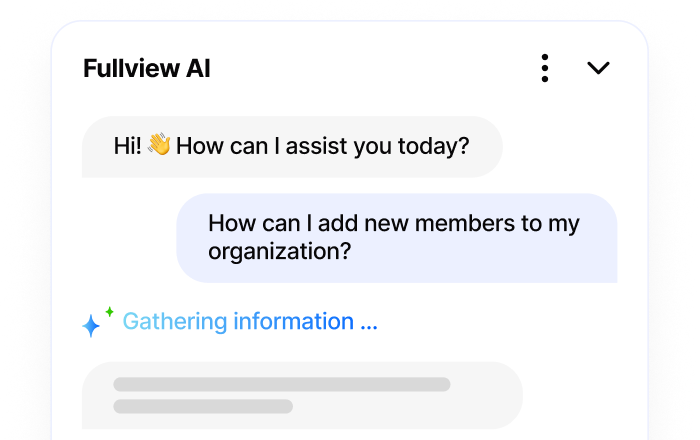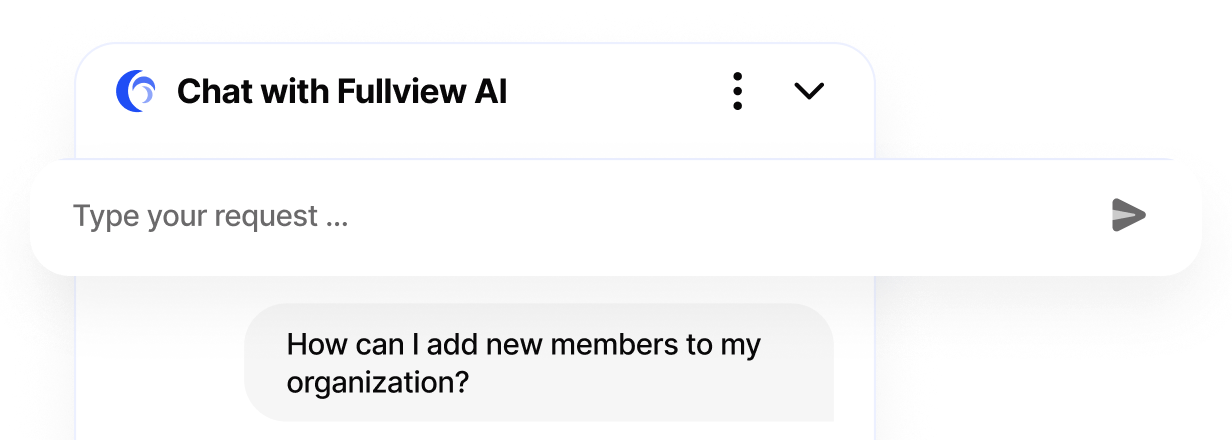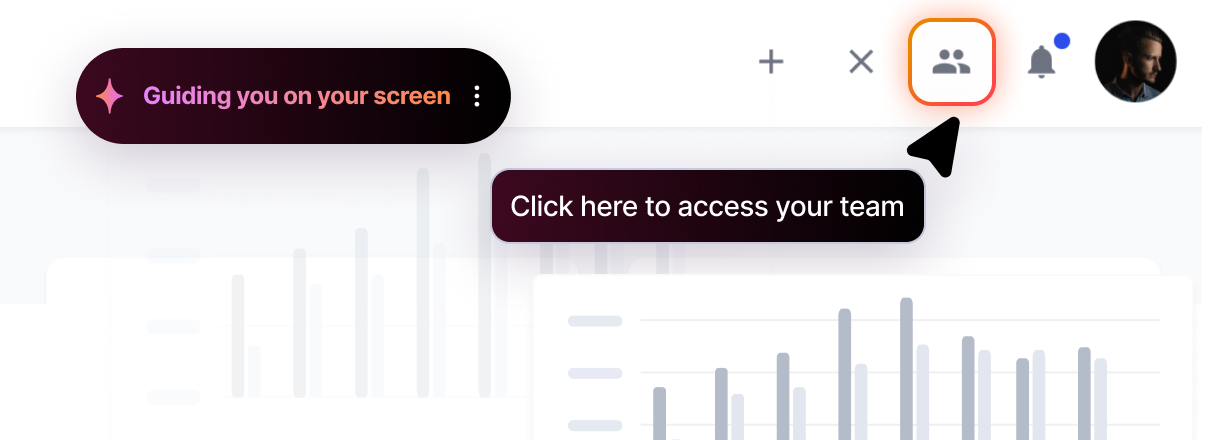How many times have you had an issue with a product at odd hours and couldn't get the support you needed? Your customers may be feeling the same way. It's a buyer's market right now and the demand for 24/7 customer support is growing. If companies don't meet those needs, customers can churn and use a competitor. This is something that is disastrous in the best circumstances, and much worse in an economic recession. In fact, nearly half of all customers consider 24/7 customer support in real time a component of good customer service.
Fortunately, advances in AI technology are making round-the-clock support more accessible and effective than ever before. Let's talk about 24/7 customer support and whether it's right for your business.
What is 24/7 customer support?
To start, we need to understand what 24/7 customer support is. 24/7 customer support is exactly what it sounds like. It means customers are able to find answers to questions and get assistance as soon as they need it, no matter what time of day it is.
What does this mean practically? Traditionally, it meant having customer support reps on hand at all times to help customers with any issue. However, with the rise of AI-powered support solutions, businesses now have more sophisticated options. Modern AI customer service agents can handle complex inquiries, troubleshoot technical issues, and even take actions within applications, all without human intervention.
If you're asking yourself whether this is really necessary, it's important to keep in mind that good customer support is essential — especially in SaaS. If most customers have come to expect 24/7 support, then that is something you will need to provide. 24/7 customer support is especially important for businesses that operate internationally, because their 9-5 won't be the same as another part of the world.
24/7 customer support is typically offered through multichannel support, which is a crucial component. The channels include:
- Social media
- AI-powered chatbots and virtual agents
- Self-help knowledge bases
- Live chats
- AI customer service agents that can navigate applications and resolve issues autonomously
Having multichannel support gives customers the option to choose their preferred method of seeking answers to problems, while AI ensures consistent, high-quality responses across all channels.
What businesses need to provide 24/7 customer support?
24/7 customer support can benefit many different types of businesses. Whether you need to implement it or not depends on your product and customer base.
For example, SaaS businesses should definitely offer 24/7 customer support since customers will usually be international. SaaS issues can arise at any time of day and are usually immediate, so having an AI-powered support system available 24/7 for troubleshooting is going to keep customers happy and using your products. AI agents can instantly diagnose problems, guide users through solutions, and even perform actions within the software to resolve issues.
eCommerce businesses are in the same boat. When you're offering products online, your customer base isn't limited to the time zone you live in. 24/7 customer support creates happy customers and loyalty to your brand.
Other businesses that should consider 24/7 customer support include:
- Legal offices
- Insurance agencies
- Medical offices
- Real estate companies
These types of businesses don't abide by the rules of the 9-5 workday, and neither do questions about those services. While these businesses may not need a live agent on call 24 hours a day, AI-powered support can provide immediate assistance and escalate complex issues to human agents when necessary.
What businesses don't need to provide 24/7 support?
While many businesses benefit from 24/7 customer support, there are some businesses where it's not necessary. For example, if your business is local with no online presence, 24/7 customer support likely isn't needed. Your customer base is living in the same area as you, so support can be provided during your normal working hours.
Similarly, if you're a B2C or D2C brand that doesn't offer eCommerce, 24/7 support is not needed. Pop-up businesses that operate in different locations will also not need to offer this service.
Benefits of 24/7 customer support
Now that we know all about what customer support is, let's talk about the benefits it has for your business.
It's expected
As the majority of businesses have started to offer online services, 24/7 customer support has come to be expected. 90% of Americans use customer service as a factor in deciding whether to do business with a company and you'll be docked points if your customer support team is not available when they need it to be.
Helps increase CSAT scores
It can also help increase your CSAT scores, because CSAT is strongly linked to first response time (FRT). FRT is the amount of time it takes from when the customer submits an issue to when they get a response. In one study, an increase in FRT from 3.9 minutes to 30 minutes led to CSAT scores falling from 92.5% to 85%. AI customer service agents can provide instant responses, dramatically improving FRT and customer satisfaction.
Allows you to cater to international customers
Conducting business online means that you and your customers are likely in different time zones. 24/7 customer support allows you to cater to international customers, no matter where in the world they are. AI agents can provide consistent support in multiple languages and time zones without the complexity of managing global human teams.
Get ahead of minor issues before they become major problems
Implementing 24/7 customer support allows you to get ahead of minor issues before they become major problems. This will save your business time, energy and potential costs down the line. For example, if a user reaches out to say their web app isn't loading, an AI agent can troubleshoot and solve the issue before it becomes a system-wide service outage.
Can be made available to premium customers
You can also offer 24/7 AI-powered customer support as a premium feature. That means that customers must be on premium or enterprise plans where you can provide even more value at a higher price point. Providing priority AI assistance at those tiers can even tempt customers to upgrade from lower tiers.
The most effective ways to provide 24/7 support
Offering 24/7 customer support doesn't need to break the bank. There are several ways to offer this service efficiently and cost-effectively, with AI leading the charge.
Deploy AI customer service agents
The most transformative approach is implementing AI customer service agents that can handle complex support tasks autonomously. Unlike traditional chatbots that follow scripted responses, modern AI agents can understand context, navigate applications, and take actions to resolve issues. For example, Fullview's AI customer service agent can actually navigate software applications on behalf of users, troubleshoot technical problems, and provide visual guidance, all without human intervention.
Create a self-help knowledge center
You should spend time creating a comprehensive self-help knowledge center for your customers. AI can enhance this by providing intelligent search capabilities and personalized recommendations. That way, customers can easily find answers to simple questions which frees up resources for more complicated level 3 support requests.
Employ intelligent automation
AI-powered automation can tackle not just level 1 support requests, but increasingly complex issues. Unlike basic automation, AI can understand nuanced problems and provide contextual solutions. It's important that you use AI automation the right way, because customers appreciate helpful, intelligent responses over scripted interactions.
Get your whole company involved
This step is especially important if you're a startup or scale-up. Not only will this make the lives of your support team easier, but it allows you to get to know your customers better. AI can help by providing insights into customer behavior and common issues. Note that this won't work for every business: some products are too complicated and there may be compliance issues if you store and process sensitive information.
Offer multichannel support
Offer multichannel support and technology to corral all support requests you get on social media, your website, through email and other channels into one dashboard. AI can help route and prioritize requests, ensuring nothing falls through the cracks.
Have a proactive support culture
With AI-powered tools like Fullview Session Replays, you can look up users to watch what they did in your app. Rather than waiting for customers to reach out, AI can identify potential issues and proactively reach out to customers or even resolve problems before they're reported. This proactive approach, powered by AI analysis of user behavior, can significantly reduce support ticket volume.
Should companies outsource 24/7 support?
Outsourcing is a popular money-saving option for small businesses. While you can outsource 24/7 customer support, you can lose control of the process and quality. Some areas you can outsource, but we don't recommend it for 24/7 customer support — especially if your product is technical and requires your support agents to have extensive training to resolve customer issues.
Instead, consider AI-powered solutions that provide the benefits of 24/7 coverage without the drawbacks of outsourcing. AI agents can be trained on your specific product and maintain consistent quality while scaling effortlessly. Having the right AI technology, proactive support practices and a comprehensive knowledge base can go a long way in and of themselves.
Wrapping things up
The bottom line is that 24/7 customer support isn't going anywhere, and AI is making it more accessible and effective than ever. Businesses offering SaaS and eCommerce to their customer base should be investing in AI-powered programs to implement 24/7 support. This will not only improve the customer experience, but it will also reduce support burdens and decrease employee turnover in the long run.
Modern AI customer service agents represent the future of 24/7 support. They can handle complex issues, take actions within applications, and provide the kind of intelligent, contextual help that customers expect. As this technology continues to evolve, businesses that embrace AI-powered support will have a significant competitive advantage in customer satisfaction and operational efficiency.
Frequently Asked Questions
How much does AI customer support actually cost compared to human agents?
AI customer support costs 60-80% less than maintaining 24/7 human teams. While human agents require salaries, benefits, and training across time zones, AI has setup costs and subscription fees. ROI typically becomes positive within 3-6 months due to reduced ticket volume and faster resolution times.
What happens when the AI can't solve a customer's problem?
AI systems use escalation protocols to transfer complex issues to human agents with full conversation context. This makes human agents more efficient since they don't start from scratch. The key is proper routing rules and training AI to recognize its limitations.
How do you ensure AI maintains your brand voice and gives accurate information?
AI agents are trained on your knowledge base, brand guidelines, and communication examples. Most platforms allow you to review responses before going live and continuously refine training based on customer feedback and conversation outcomes.
Will customers be frustrated talking to an AI instead of a human?
Studies show customers prioritize quick problem resolution over human interaction. Many prefer AI for simple issues due to instant availability. Success requires transparency about AI interaction and easy escalation to humans when needed.
How long does it take to implement AI customer support?
Basic AI support can be running within 2-4 weeks, including knowledge base training, helpdesk integration, and testing. Advanced features like application navigation may take 4-8 weeks to fully optimize.
Can AI support integrate with our existing helpdesk tools?
Yes, most AI platforms integrate with Intercom, Zendesk, Salesforce Service Cloud, and other popular tools. AI appears as another agent in your dashboard, handling tickets automatically without changing existing processes.
What types of customer issues can AI actually handle?
AI handles account setup, billing questions, technical troubleshooting, feature guidance, password resets, and multi-step processes. Advanced AI can navigate applications and perform actions like account updates or refunds. Limitations include issues requiring human empathy or highly specialized knowledge.
How do you measure the success of AI customer support?
Key metrics include first response time, resolution rate, customer satisfaction scores, ticket volume reduction, and cost per ticket. Most businesses see 40-70% of tickets handled entirely by AI within the first few months.
Is AI customer support secure enough for sensitive customer data?
Reputable platforms use enterprise-grade security including encryption, GDPR compliance, and SOC 2 certifications. Many automatically detect and mask sensitive information. Review security protocols to ensure compliance with industry requirements.
What happens to our human customer support team?
AI elevates human roles rather than replacing them. Agents focus on complex problem-solving and relationship building while AI handles routine inquiries. Many agents become AI trainers, customer success specialists, or escalation experts.
How do you train AI to understand industry-specific terminology?
Upload industry knowledge, product documentation, and successful support interactions. AI learns your industry language and problem patterns. Most platforms allow ongoing training to correct responses and add new information as products evolve.
Can AI handle support in multiple languages?
Yes, modern AI platforms communicate in dozens of languages and automatically detect customer preferences. This eliminates the need for native speakers in every time zone while maintaining consistent quality across languages.


.png)





.webp)
